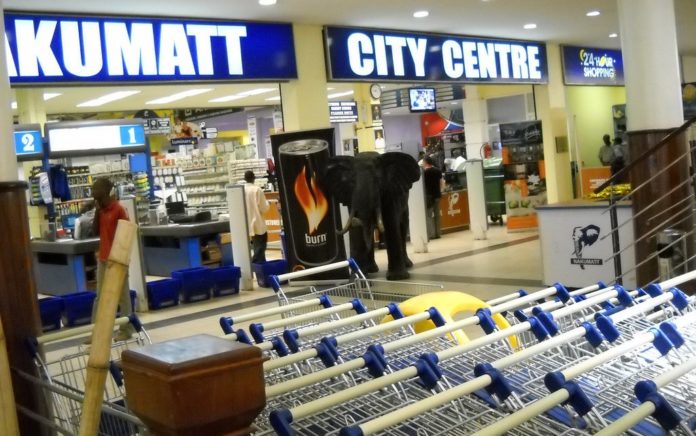BY JOHN LOGGARD
Having been a Nakumatt shopper from the early 1990s, it saddens me to see the state of the retailer today, and I hope something could be done to rescue it.
Yet, from the experience of what has been happening in other countries, my view is that the retailer should give way to its competitors, and if not, invite a shareholder to rescue it.
Nakumatt supermarkets has been struggling for a while now, with seemingly no solution to this impasse.
The problem with such a situation, a zombie business, is that it is more costly for the economy the longer the zombie business continues to limp along.
It would be better for Kenya’s economy if Nakumatt was left to die, a requiem mass held shortly thereafter, followed by a burial.
Why such a painful decision? The challenge with a zombie business, contrary to the way many view it, tends to hold a lot of resources, and even continues to consume resources from an otherwise healthy economy.
In the case of Nakumatt, its employees have recently come out complaining about delayed salaries.
This means that a very productive chunk of the economy – several thousand employees, are not being paid, and thus are not spending money.
Every day that the situation continues, a number of other businesses are missing out on potential sales, from the vegetable vendors, the local kiosk and so forth and so on. Each missed sale has a multiplier effect.
It doesn’t help the supermarket has been struggling to pay its suppliers, meaning that quite a number of these suppliers have a gap in their finances.
This again translates to delayed growth for these businesses, missed opportunities, and perhaps even fewer employees – meaning that someone somewhere is missing out on a salary.
Again, there’s the cascading effect of the money that these suppliers would have ploughed back into the economy.
Furthermore, many of these suppliers have halted their deliveries to the retail chain, which means that they may be producing less as they are no longer moving products through Nakumatt.
For an agroprocessor, it means again there’s a farmer somewhere missing out on income from unsold produce.
Nakumatt customers have resulted to either shopping in other outlets, or doing with what they have around them.
With many of the supermarket’s outlets being anchor tenants, it means that a mall such as The Junction is missing out on potential footfall, translating to lower spending for the other tenants.
It also means that the country is underutilising dozens of locations where the supermarket has outlets. Being prime locations, they are not being utilised to their full potential.
Meanwhile, other competitors who would make better use of these locations are locked out.
There being a limited number of such locations, it means then that Nakumatt’s competitors are paying an indirect penalty by it not been possible for them to make use of these spots, despite being in a far much healthier state.
Nakumatt has been popular with the higher tier of income earners in the country, and with these shoppers having significantly higher purchasing power, we can safely assume that a good portion of their spending went to unplanned purchases.
So called conspicuous consumption is important for businesses in the country, for at the end of the day, it does account for production. Again, this may have been significantly reduced.
A local tea producer is on the record stating that sales of their premium brands have suffered as the retailer’s fortunes have tumbled.
While there is the fear that failure of the supermarket would translate to job losses, this may not be the case. Nakumatt’s exit would create space for other retailers who will need as many, if not more of Nakumatt’s headcount.
The biggest headache would be the amount that the retailer owes to banks. How the banks go about this is beyond the scope of this article, given they do have experts tasked with dealing with such instances.
It is therefore critical that a solution be found as soon as possible while ensuring the interests of the employees and suppliers are catered for.
Nakumatt does not have to die, a capital injection could rescue the retailer. It may be a painful injection as it would dilute the stake of current shareholders.
What is clear though is that the longer Nakumatt continues to stagger along like a zombie, the costlier it is to Kenya’s economy.









